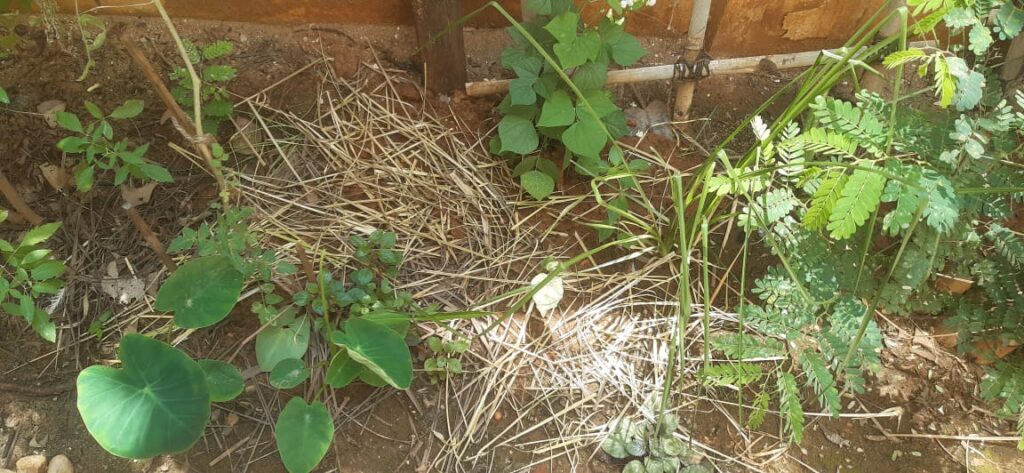Mulching and its benefits to the soil

Mulching is a process of covering the soil with a layer of material to improve soil health. It can be done using either organic or inorganic material. Organic material includes dry leaves, grass clippings, straw and wood chips. Inorganic material includes pebbles, plastic and rubber. Microorganisms feed on organic mulch and in turn improve soil health. Mulching can be done throughout the year. Mulching the plants during summer helps to retain moisture in the soil and reduces water usage. Mulching during rainy season prevents soil erosion. Adding mulch to your plants has lots of benefits but at the same time adding too much mulch can harm them. It’s important to mulch the plants for a few inches so that it doesn’t harm them. You can mulch your plants 2 to 3 inches if you use organic mulch. If you use inorganic mulch you can mulch for 2 inches.
Here is how mulching benefits the soil:
1. Prevents weed growth
Covering the exposed soil in your garden with at least 2 to 3 inches of mulch prevents weed growth. Mulching your garden is better than growing cover crops because cover crops compete for water and nutrients, whereas mulching on the other hand improves soil fertility.
2. Retains Moisture
Mulching the plants is beneficial during summers when the temperatures are high. Mulch helps to retain moisture in the soil and therefore you do not need to water your plants often during summer.
3. Regulates soil temperature
Mulching the soil helps to regulate the soil temperature and this is beneficial for overall crop growth. Extreme temperatures affect the plant’s growth, mulching keeps the soil cool and prevents stress in plants. Coarse mulch helps in controlling the soil temperatures when compared to fine mulch.
4. Prevents soil erosion and soil compaction
Mulching helps to prevent wind and water erosion. At the same time it prevents soil compaction that damages the roots of crops.
5. Improves Soil fertility
Organic mulch increases soil nutrient levels. Wood chips, grass clippings, straw and bark mulch provide more nutrients to the soil when compared to inorganic mulch. Soils that contain mulch have greater levels of fertility and microbial population.
6.Reduction of diseases
Mulch provides nutrients for beneficial organisms that in turn release chemicals that inhibit pathogens. It also increases the microbial population that prevents harmful pathogens from damaging the plants.
